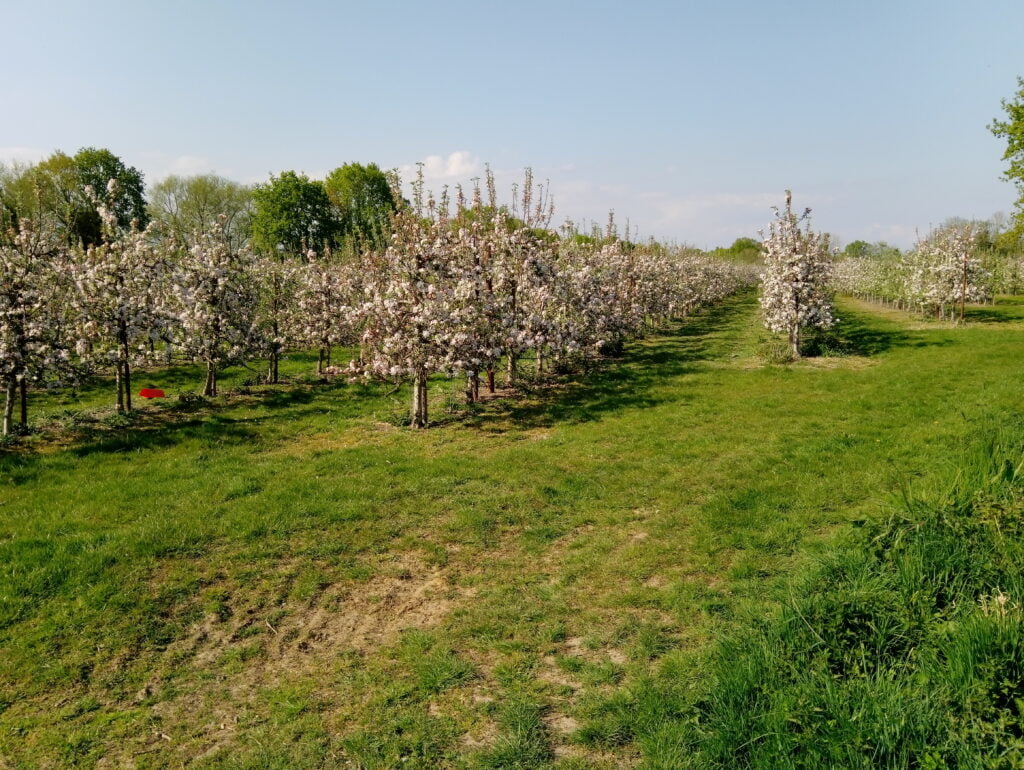How is accountant FD Solutions and Accounting supporting the Kent Food Industry businesses – focus on Paddock Wood, Maidstone and Tunbridge Wells?
As part of a group of Paddock Wood residents, in 2022 we purchased a threatened local 20 acre apple orchard. Our aim was not a career change from accountants to harness our inner farmer ambitions but to prevent yet another part of the countryside falling into the hands of developers. Once secured our initial intention was offering this to neighbouring apple farmers to maintain in return for limited access. From the subsequent conversations accountants FD Solutions and Accounting held, it soon became apparent how much of a knife edge the fruit industry in West Kent is in. Farmers of several nearby orchards are well above retirement age because their children do not have an interest in taking them on, else have been already forced into diversification and only just breaking even. Either way none wanted additional orchard to farm. Could it be that the orchards of Sevenoaks, Maidstone, Tunbridge Wells and Paddock Wood are heading in the same direction as the hop fields they replaced? If so – what next, solar farms?
This information is highly relevant professionally too since the food manufacturing and distribution sectors are accountants FD Solutions and Accounting key area of expertise and led us to wondering how this change could impact the overall landscape of Kent businesses. Based on 2022 KCC Kent Analytics data Kent had 2,310 food production businesses (total South East region 11,560), out of a total 73,043 for all businesses or 3%. At first glance this statistic appears low but this does not take into account business size (turnover or number of employees). If distributors and resellers (including hospitality) are added this increases to 10% – hardly the Garden of England and beaten nationally by the South West and West Midlands.
Alarmingly the construction sector is Kent’s largest business group at 13,660 enterprises, which is hardly surprising considering the level of housebuilding currently happening and the proximity to the urban London suburbs.
Statistics aside the number of similar sector businesses make a strong business case for firms of accountants to specialise. In so doing, offering an even higher value added service to challenged sectors. Alongside the year end accounts I believe firms of accountants should provide specific sector financial information which helps support business owners. As an insider accountants FD Solutions and Accounting know the quality of many of the agricultural sector’s in-house computer systems is somewhat lacking therefore any consultancy advice and financial information which can assist cash flow planning and decision making is essential.
As a capital expenditure heavy sector tax planning is crucial to ensure the best use is made of annual capital allowances to ensure where possible the full £200,000 annual allowance for 100% tax relief on qualifying plant and machinery is used. Tax rules are complex and regularly changing therefore forward planning is essential to achieve the optimum position. Working closely with local West Kent businesses around Paddock Wood, Tonbridge, Tunbridge Wells and Maidstone ensures accountants, FD Solutions and Accounting maintain close links and an understanding of day-to-day business workings and subsequent medium term need.
We have noticed an increase in alternative land uses which take advantage of the government’s net zero 2050 pledge. In addition to re-wilding and wild flower meadows there has been a significant increase in solar farms. Each scheme qualities for varying government support and subsidies. Renewable projects are a long-term investment which require professional advice throughout execution to ensure every aspect has been carefully considered – could this be the 21st century future of West Kent farmland? Through being taken on by a neighbouring landowner the Paddock Wood orchard has a happy ending; some of the land will be used for a mixture of a wild hay meadow and spinney woodland – with what remains of the orchard being used for owner consumption and a small cottage industry producing bottled apple juice.



